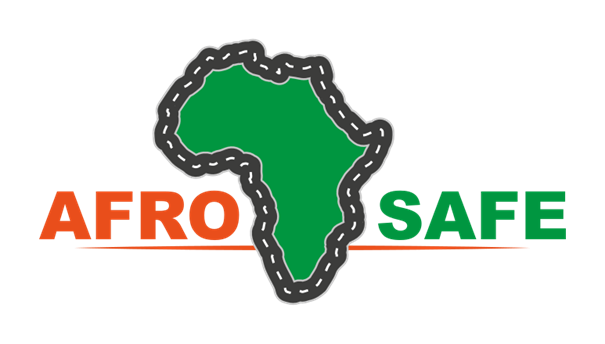AfroSAFE— Safe System for radical improvement of road safety in low- and middle-income African countries
How can we jointly contribute to increasing knowledge about road safety, in all parts of the world? That is what our researchers want to contribute to in our new project AfroSAFE Safe System for radical improvement of road safety in low- and middle-income African countries.
Safe speeds, tolerance for human errors and responsibility at core
Despite accommodating only 4% of the global motor vehicle fleet, African roads witness more than 10% of the world’s traffic fatalities. African traffic death rates are the highest globally and more than four times higher than the European average. With further motorisation, traffic fatalities and injuries are expected to further grow unless decisive actions are taken to tackle the problem.
Recent yet impressive traffic safety improvements in some other world parts are often attributed to the adoption of the Safe System-approach to safety management. Its highly humanistic long-term goal is that no one will be killed in traffic (Vision Zero). Besides the vision, the Safe System suggests fundamental principles that can be applied and give positive results anywhere, regardless of how bad the starting situation might have been. Safe speeds, tolerance for human errors and responsibility of the transport system designers to create a forgiving road environment are at the core of the Safe System.
There are good reasons to believe that the Safe System can be a major game changer in Africa. However, it cannot be exported or enforced from the outside, but must be adopted by African experts who know and understand the local conditions.
Knowledge transfer
The primary objective of the project is to propagate Safe System within the road safety work context in African countries. To reach this, AfroSAFE will exposing the local practitioners and decision makers to the state-of-the-art knowledge and practices based on Safe System. The project will also support them sharing knowledge, tools and methods for road safety improvement—adjusted to the African conditions and in tight cooperation with the local actors.
Project focus areas
The project will deal with all five major pillars of road safety—management, vehicles, road users, infrastructure, and post-crash care. However, it will specifically focus on two important aspects:
- Vulnerable road users. Pedestrians and cyclists are the largest but most underprivileged road user group in Africa, disproportionally impacted by traffic accidents. Creating safe environments for them will have a direct positive impact on public health and well-being, gender equality, sustainability and liveability of the cities.
- Local expertise building. The shift to Safe System in Africa requires a critical mass of both road safety professionals and road users with the right knowledge and attitudes. It is a long-term process and the local educators play the key role in it. AfroSAFE adopts ‘train-the-trainer’ approach, creating the initial momentum and concentration of local expertise that will continue to spread after the project end.
The project is a result of collaboration within SAFER, where several workshops and project creation activities resulted in this new important project, funded by the Horizon Europe Research and Innovation programme.
Project partners
• Lund University, Sweden (coordinator)
• Institute of Transport Economics, Norway
• Swedish National Road & Transport Research Institute, Sweden
• University of Education, Winneba, Ghana
• NTU International, Denmark
• Technical University of Delft, Netherlands
• Volvo Technology AB, Sweden
• Autoliv Inc., Sweden
• Chalmers Industriteknik, Sweden
• University of Dar es Salaam, Tanzania
• Zambian Road Safety Trust, Zambia
This project has received funding from the European Union’s Horizon Europe research and innovation programme – Grant Agreement 101069500.
Read more: www.afrosafe-eu.africa
LinkedIn: https://www.linkedin.com/company/afrosafe

